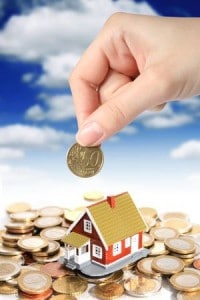In this Real Estate Talk show we answered a question from one of our listeners on depreciation and capital gains tax.
We asked Brad Beer from BMT Quantity Surveyors for his thoughts.
Here's the transcript:
Kevin: I had a question sent in from Gary.
I have an investment property that I claim depreciation on each tax year.
Can you please advise what happens when I sell the property? Do I then have to pay back everything that I’ve claimed? Does this mean all of the deductions have to be paid back?
For example, if I get $5000 worth of depreciation and I’m on a 30% tax bracket, I get approximately $1500 back. Do I only have to factor in the $1500 or the full $5000? How does it work?
Well, Gary, let’s get an answer on that question for you from Brad Beer from BMT Tax Depreciation.
Can you answer Gary’s question?
Brad: Look, I can. I’ll explain how depreciation affects capital gains tax.
![]()
This is a very regular question I get. We’re the quantity surveyor that works out the depreciation.
We don’t do the rest of your tax return, but I kind of know how it works.
When you claim depreciation what happens is and in this example, he’s saying:
“If I claim $5000 worth of depreciations, I get that back at my tax rate at 30% at $1500.”
Now, if or when you actually sell a property, what happens is that that $5000 actually gets added to your cost base for the purpose of capital gains tax.
What’s going to happen is you’re going to pay more capital gains tax based on what you claimed.
However, usually, under the current rules, what happens is you get a 50% exemption on that capital gains tax payable, providing you’ve owned it for 12 months or more.
What that means is that in this scenario, there’s $5000 additional income added to the end value from a cost base perspective, and you’ll pay additional capital gains tax at half of that marginal rate.
In this scenario, he’ll pay back $750 of his $1500 effectively on the sale of the property.
Kevin: There’s still a net benefit, though, isn’t there?
Brad: Yes. The fact is he’s made a deduction, he’s got $1500 in the pocket, and then if he sells the property, for that year, he’s going to pay $750 of it back to the tax office.
Now, that’s only half of it.
The other thing is also about the time value of money. 
There are different tax brackets and things like that, but what happens is in most scenarios, because you’re only paying that tax at half the amount, it pretty much always works out that it’s worth actually claiming it on the way through, and then at the end, when you pay some additional capital gains tax, you’ve put more money in your pocket on the way through.
If I get a dollar in my pocket today, it’s worth more than a dollar in my pocket in a year or two years or three years’ time.
Capital gains tax is something you pay if you sell or when you sell, which will – I assume – be at a later date.
You get to use that money.
You can put it into reduce debt and do things on the way through.
You just need to have some more available at the time when you potentially sell the property.
Kevin: As always, though, Gary, make sure that you check with your accountant.
Listen to the full show at RealEstateTalk.com.au and while you’re there subscribe and receive our weekly podcast (or the transcripts) where I interview Australia’s leading property experts.
Related article: Tax Depreciation Schedules 101














